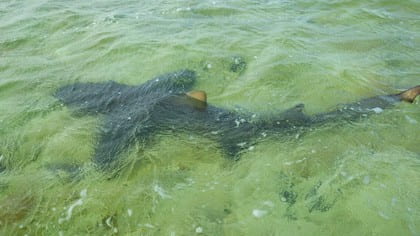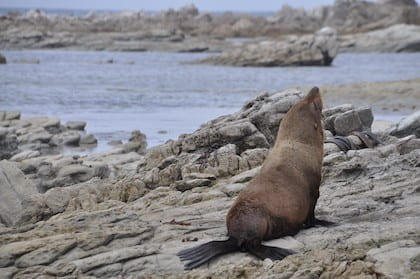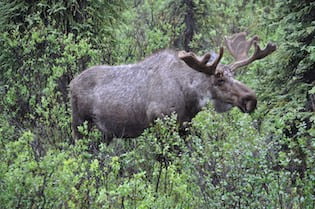 I am truly fascinated by the interconnectedness of our world. One of the reasons that I am so passionate about wildlife medicine and conservation is because it spans the dimensions of human, non-human animal, and environmental wellbeing. I could spend hours avidly discussing all of the intricate connections between wildlife and human health.
I am truly fascinated by the interconnectedness of our world. One of the reasons that I am so passionate about wildlife medicine and conservation is because it spans the dimensions of human, non-human animal, and environmental wellbeing. I could spend hours avidly discussing all of the intricate connections between wildlife and human health.
The COVID-19 pandemic is no exception to the fact that everything in the world is deeply intertwined. Over the last few weeks, I’ve had conversations with my friends and colleagues about issues such as social inequality, healthcare, community, societal values, epidemiology, history, new developments, and the list goes on. These recent current events also reveal an important intersection between human and wildlife health and, in doing so, provide an impetus for us to take responsibility for the wellbeing of wildlife and the environment.
There is a great deal of evidence that suggests that many emerging human diseases, including this current pandemic, are linked to our interactions with wildlife. The CDC estimates that 6 out of every 10 established infections and 3 out of every 4 new or emerging infections are from non-human animals. In addition to the current pandemic, past health crises, such as HIV and Ebola, were also linked to the wildlife trade. The goal of this article is not to thoroughly evaluate the evidence for that connection, but rather to discuss its consequences. If you would like to learn more about the relationship between wildlife and emerging human diseases, check out the resources at the end of this article.
If we acknowledge that potentially dangerous emerging diseases can often be linked to our interactions with wildlife, then we must ask — what do we do about it? For the most part, I hear two responses. One — support wildlife health and reduce harmful interactions between humans and other animals. Two — get rid of wildlife. You might guess that I would personally choose option one. I believe that every person has many reasons to do the same.
We rely on wildlife health more than we often acknowledge, or maybe would even like to admit. Wildlife health is imperative for healthy ecosystems and we rely on those ecosystems for life itself. Think big — oxygen, food security, water, climate stability, and more. Healthy ecosystems also provide enormous economic stimulation through massive industries such as transportation, shipping, recreation, and many more. We continue to uncover potential medications from areas that have persistent biodiversity, such as alternatives to opioids and possible new sources of antibiotics. We need healthy ecosystems all over the world to support and enable us to continue living on this planet. Unfortunately, those ecosystems and the inhabiting wildlife species are threatened from many directions.
Species that once had the space to exist without interacting with humans are now forced into contact with human communities after their habitats are continuously destroyed and fragmented. Climate change leads to shifting geographic ranges leading to species appearing in new locations around people that have never been exposed to them before. Many species become endangered or extinct every year, all representing possible losses for unforeseen discoveries. Devastating abuse is committed against animals through the wildlife trade all across the world. Those wildlife trade markets also pose a major risk to human health by exposing a wide variety of stressed, immunocompromised animals to each other and humans in tight quarters, sometimes being ingested and in other cases begin transported all across the world. The more we push these animals to the brink, the more at risk we become — to disease, climate instability, food insecurity, loss of biodiversity, and more.
I have good news though. Every single person has the potential to be a conservationist. That means you. Each one of us has our own unique set of perspectives and skills that can be wielded to improve the state of wildlife and ecosystem health, and therefore environmental and human wellbeing across the world. The most important thing to know is that we all have something to offer.
If you have training, consider how you might apply that knowledge to offer a new solution. Successful communication takes on infinite forms — use your method to spread awareness, organize, and build ideas together. We can communicate through visual art, music, words, writing, and so on. Find your strength and implement it. Be mindful of what you consume and purchase. Turn off your lights. If you are coming from a place of privilege, acknowledge that with a sensitive awareness and use it to make the world a better place for humans and so many other species.
No action is ‘small’. Taking action is a big and mighty step to take, no matter the scale. When you take action, you become a conservationist.
This crisis has exposed just how reliant we are on mutual compassion and consideration for other beings sharing our communities and our planet. By taking action on issues we care about, we can nourish that feeling of unity and respect. We need to nurture a culture of compassion that acknowledges the interconnectedness of all facets of our globe and daily lives. No matter how you decide to contribute to positive change in this world, you should know that it is all deeply and inevitably intertwined. An improvement on one problem supports change for another in direct and indirect ways.
While you are thinking about how you can contribute to this global kindness, don’t forget to be kind to yourself. Sometimes the constant drive to make a difference can be confusing, complicated, and filled with uncertainty. Sometimes we can inadvertently put large amounts of stress on ourselves or our relationships. Give yourself the space to constantly learn and evolve. Remember — no one is perfect and no one can do everything. We all must work together. While you are being kind to the planet and all of the creatures living on it, always remember to be kind to yourself and those around you.
I hope we learn from the solidarity that has been conjured by this pandemic. I hope we harness it for empowerment, triggering a cascade of positive actions that can change our world for the better. In my experience, taking action for the things that are important to me has been empowering. That empowerment can be a brilliant source of invigorating positive energy, particularly in times when we feel utterly powerless. When we emerge from this crisis, I hope that we can continue to unite and pursue empowerment by taking action for positive change. Let’s change the way we see and engage with each other, our world, and the other animals living within it.
Thank you for your time and thoughts. I sincerely wish health and safety to everyone reading this. I have many resources saved regarding all of the issues mentioned in this short article and I would love to share them with you if you are interested!
—————
Resources to learn more:
A recent, short Scientific American interview about COVID-19, the wildlife trade, and human disease: https://www.scientificamerican.com/podcast/episode/covid-19-the-wildlife-trade-and-human-disease/
A CDC page explaining zoonotic disease: https://www.cdc.gov/onehealth/basics/zoonotic-diseases.html.
Karesh et al. Wildlife Trade and Global Disease Emergence. Emerging Infectious Diseases; 11 (7) 2005.

Mariah Rayfield Beck, class of 2020, will be starting a small animal rotating internship at Ocean State Veterinary Specialists in Rhode Island this summer. After that, she plans to specialize in wildlife and conservation medicine. She is also an educator that teaches about marine conservation in classes, workshops, and summer camps.




